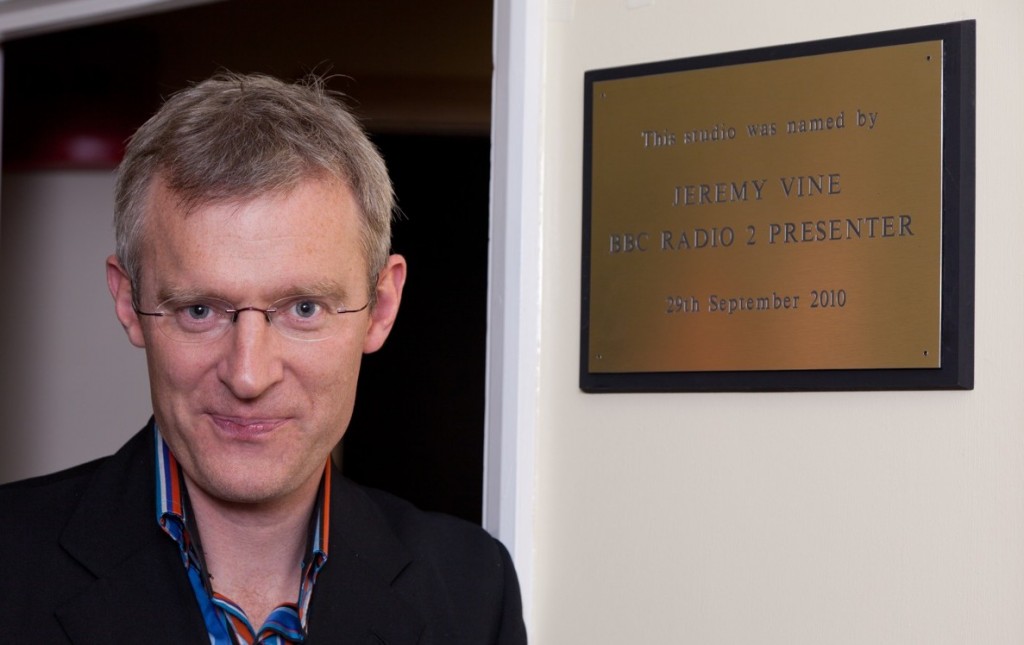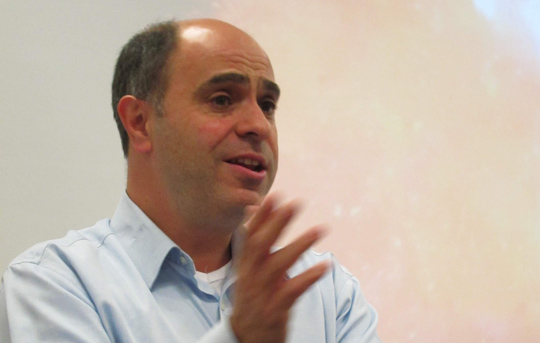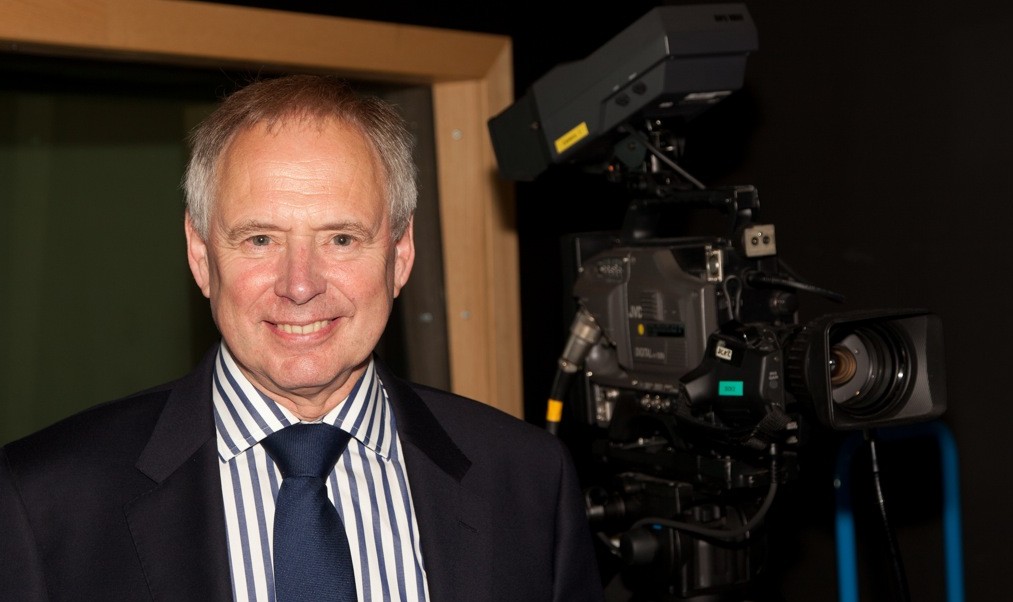
Photograph: Dean O'Brien
Today Jeremy Vine is top of the broadcast journalism food chain. He presents an eponymous show on BBC Radio Two every lunchtime, fronts Panorama on BBC One every week and plays the all-important graphics role in the BBC’s Election Coverage. But it was all so different in 1986 when Vine started our as a bright-eyed 21-year-old trainee on the Coventry Evening Telegraph.
Opening Coventry University’s Coventry Conversation series last night, he let the university’s journalism students in on a few secrets (www.coventry.ac.uk/coventryconversations)
Vine had never been to Coventry before his first day on the ‘Tele’ thirty four years ago. He was thrown in at the deep end – sent off to report the courts and come back with story return with a story an a picture. “I had to go up with photographer, John Potter and work out who the defendant was and say, “that’s him! He was about 19 and made off with his family so we had to run after him.
“I was laughing thinking, ‘This is probably the most exciting thing I have done in my life!’ ”
But Vine was very quickly brought back down to earth after he filed his story.
“[The defendant] had run up to a woman in a park saying, ‘I want sex’, so that was my intro”. But news editor Geoff Grimmer told Vine, “That’s not a story because everyone wants sex. The story is that she fought him off with a shoe.”
It didn’t get much better. On another court case, the defendant collared Vine in the corridor and spun him a good yarn about the crime. Trouble was, it was somewhat different to his evidence in court. Vine wrote it up as gospel only for the news editor to toss it in the rubbish bin. Another painful learning experience. “I got some pretty good carpetings for getting stories wrong,” he admitted.
“The most heinous crime was for someone’s name to change halfway through the story or in the lists of divorces or TV licence evaders. They also never wanted to see the words ‘incident’ or ‘situation’, if it’s a crash it’s a crash.”
He did learn though, and kept his eyes and ears open and delivered some front page splashes, including two very negative stories about the very university in which he was speaking (then Lanchester Polytechnic). Current Coventry Telegraph editor Darren Parkin, who is returning the ‘Tele’ to its roots, was on hand to present Vine with some of the broadcaster’s cuttings from the time. He looked humbled to receive them.
Vine said two of the biggest stories he covered on the Telegrpah were Coventry City winning the FA Cup and a rapist on the prowl in the City Centre. “At the end of the day I could see my story coming off the press 1,000 times a second. It was an amazing feeling seeing your name in print.”
Not amazing enough though.
Vine moved from ‘Tele’ to Telly, and to the BBC in 1988 for a news traineeship. News reporting followed, then Today on Radio Four, BBC Belfast, a job as the BBC’s Johannesburg correspondent, and then, in 2000, the big one: presenting ‘Newsnight’.
There was, however, already a Jeremy on that show (Paxman), and there was only really room for one.
“I was the other Jeremy and it was his show,” Vine recalled. The other Jeremy got the big ones, but Vine did some sterling journalism on Newsnight before Radio Two called in 2003 and he became the Jimmy Young of the new era.
For the 18-year-old wannabe hacks in the audience that night, there were plenty of good lessons in that Conversation. Words ripe from the Vine.



